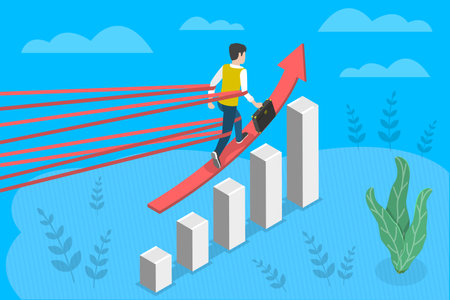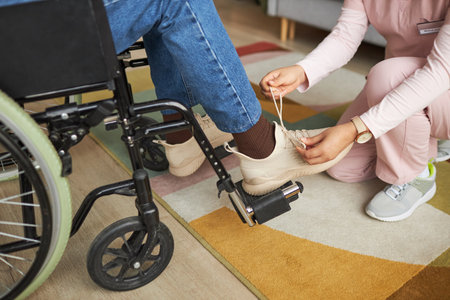Introduction to Post-Traumatic Growth
Post-traumatic growth (PTG) refers to the positive psychological changes that can arise following highly challenging life events, such as acquiring a disability. Rather than focusing solely on the difficulties and losses associated with trauma, PTG highlights the potential for individuals to find new meaning, develop inner strength, and foster personal development in the aftermath of adversity. In the context of acquired disabilities—whether resulting from accidents, illness, or other causes—this concept is particularly relevant. Across the United Kingdom, where an estimated 14 million people live with disabilities, understanding PTG offers a valuable framework for healthcare professionals, support networks, and individuals themselves. By recognising that growth and resilience are possible even in the face of significant challenges, we can better support those adjusting to new realities and encourage a more empowering approach to rehabilitation and integration within British society.
2. Understanding the Experience of Acquired Disabilities
Acquiring a disability—whether through illness, injury, or a progressive condition—marks a profound turning point in an individual’s life. The psychological and social impact can be significant, affecting not only physical ability but also self-identity, relationships, and overall wellbeing. In the UK context, individuals often encounter unique challenges as they navigate both personal adjustment and the complexities of the British healthcare and support systems.
Psychological Impact
The emotional response to acquiring a disability is multifaceted. Many experience grief for their former abilities, anxiety about the future, and fear of stigma or isolation. Depression and adjustment disorders are not uncommon as individuals come to terms with sudden changes in independence and lifestyle. However, it is essential to recognise that these emotions are part of a natural adjustment process, and many individuals eventually find pathways towards acceptance and personal growth.
Social Impact
Socially, acquired disabilities can alter dynamics within families, workplaces, and communities. Individuals may feel isolated if friends or colleagues struggle to understand their new circumstances. Public accessibility issues and societal attitudes towards disability can present further barriers to full participation in daily life.
Common Challenges within the British Healthcare and Support Systems
| Challenge | Description |
|---|---|
| Access to Services | Navigating NHS referrals and waiting lists can be time-consuming, potentially delaying rehabilitation or specialist support. |
| Coordination of Care | Transitions between hospital care, community services, and social care may lack seamless communication, leading to fragmented support. |
| Financial Concerns | Adjusting to changes in employment status or applying for benefits such as PIP (Personal Independence Payment) can add stress during an already challenging period. |
| Emotional Support | Mental health resources specific to acquired disability are sometimes limited, leaving individuals without adequate psychological support. |
| Community Integration | Lack of accessible public spaces or inclusive activities may hinder reintegration into community life. |
Towards Empowerment and Growth
While these challenges are considerable, the British healthcare system does offer avenues for support through multidisciplinary teams, peer groups, charities such as Scope or Disability Rights UK, and local council services. Recognising these hurdles is the first step towards empowering individuals to advocate for their needs and seek out resources that foster post-traumatic growth. By acknowledging both the difficulties and available supports within the UK context, we can better understand how people adapt—and even thrive—after acquiring a disability.

3. Facilitators and Barriers to Post-Traumatic Growth
Understanding the factors that either support or hinder post-traumatic growth (PTG) is crucial for individuals with acquired disabilities, as well as for their families, caregivers, and healthcare professionals. In the UK, a variety of personal, social, and systemic factors come into play, shaping each individuals journey towards growth following a life-altering event.
Facilitators of Post-Traumatic Growth
Supportive Social Networks: Access to compassionate family, friends, and peer support groups has been consistently identified as a major facilitator of PTG. For example, many Britons who have acquired disabilities following road traffic accidents have credited local support groups such as those run by Scope or Headway UK with providing both emotional encouragement and practical advice. Sharing experiences within these communities fosters resilience and helps individuals find meaning in their challenges.
Access to Holistic Rehabilitation Services: The NHS offers multidisciplinary rehabilitation programmes that address not only physical recovery but also psychological wellbeing. Early intervention by occupational therapists, counsellors, and clinical psychologists can help individuals develop coping strategies and rebuild self-efficacy—key components for PTG.
Cultural Attitudes Towards Disability: While stigma remains an issue in some areas, there is growing awareness and acceptance of disability in British society. Positive media representation and campaigns such as Disability Confident encourage empowerment and inclusion, which can help individuals reframe their identities and focus on new possibilities post-injury.
Barriers to Post-Traumatic Growth
Social Isolation: Despite advancements, many people with acquired disabilities still experience loneliness or marginalisation. Rural residents may face additional challenges due to limited access to accessible transport or community resources. One individual from Yorkshire shared how difficulty accessing public spaces led to feelings of frustration and withdrawal, highlighting the importance of inclusive infrastructure.
Mental Health Stigma: While mental health awareness has improved in the UK, some individuals still hesitate to seek psychological support due to concerns about being judged or misunderstood. Without appropriate help, conditions like depression or anxiety may go unaddressed, impeding PTG.
Bureaucratic Challenges: Navigating the benefits system (such as applying for Personal Independence Payment) can be daunting and stressful. Delays or complex paperwork can undermine confidence and add to an individual’s emotional burden during an already difficult time.
Learning from Real-Life Experiences
The diversity of lived experiences across the UK demonstrates that while many barriers remain, numerous individuals are finding ways to thrive after trauma—with the right support. By identifying both facilitators and obstacles to post-traumatic growth, we can work towards more inclusive systems that empower everyone living with acquired disabilities.
4. The Role of NHS and Community Support
For individuals adjusting to life with acquired disabilities in Britain, access to comprehensive support systems is pivotal in fostering post-traumatic growth (PTG). The National Health Service (NHS), local community groups, peer networks, and charities each play a vital role in helping people rebuild their lives and develop resilience after trauma.
The NHS: A Foundation for Holistic Care
The NHS provides a structured framework for the medical, psychological, and social rehabilitation of individuals with acquired disabilities. Through specialist clinics, multidisciplinary teams, and tailored rehabilitation programmes, patients receive not only immediate care but also long-term support aimed at enhancing independence and wellbeing. For example, access to physiotherapy, occupational therapy, and mental health services under one roof can help address the wide-ranging needs that arise after traumatic events.
Local Community Groups and Peer Networks
Community-based organisations offer invaluable support by creating safe spaces where individuals can share experiences, exchange practical advice, and build meaningful relationships. Peer networks often facilitate group activities—such as adaptive sports or creative workshops—that encourage confidence and self-discovery. These connections foster a sense of belonging and reduce isolation, which is crucial for emotional recovery.
Charities: Bridging Gaps in Support
Numerous UK-based charities complement NHS services by providing targeted resources such as mobility aids, financial assistance, vocational training, or advocacy services. Charities like Scope or Leonard Cheshire work closely with disabled individuals to empower them through education, employment opportunities, and independent living skills.
Overview of Key Support Structures in Britain
| Support Provider | Main Services Offered | Role in PTG |
|---|---|---|
| NHS | Medical care, rehabilitation, counselling | Addresses physical and psychological recovery needs holistically |
| Community Groups | Social activities, peer mentoring | Reduces isolation; promotes shared learning and encouragement |
| Peer Networks | Experience sharing, emotional support | Fosters resilience through lived-experience connection |
| Charities | Aids provision, advocacy, skill development | Bridges service gaps; empowers individuals towards independence |
Together, these support structures form a robust safety net that nurtures hope and growth after trauma. By leveraging both statutory services like the NHS and grassroots community initiatives, individuals with acquired disabilities across Britain are better equipped to navigate their journeys of post-traumatic growth.
5. Personal Stories and Case Studies
Personal experiences serve as powerful testimonies to the resilience and adaptability of individuals living with acquired disabilities in the UK. These stories not only inspire but also provide valuable insight into the diverse pathways of post-traumatic growth. Consider James, a former construction worker from Manchester, who sustained a spinal cord injury following a workplace accident. Initially, James struggled with feelings of loss and uncertainty about his future. Through intensive rehabilitation and peer support groups, he gradually discovered new interests, including adaptive sports and public speaking. Today, James is an advocate for disability rights, using his journey to encourage others facing similar challenges.
Another notable example is Priya, a teacher from London who experienced sudden hearing loss due to meningitis. Priya’s adaptation involved learning British Sign Language (BSL) and engaging with local Deaf communities. Over time, she found strength in connecting with others who shared her experience, ultimately leading her to establish a support network for people with acquired hearing impairments. Her story underscores the importance of community and shared understanding in fostering personal development after trauma.
These individual narratives are echoed in wider case studies conducted by UK charities and healthcare organisations. For instance, research by Scope highlights how access to tailored counselling services and vocational training can significantly enhance psychological well-being and open new avenues for career fulfilment. Such evidence demonstrates that post-traumatic growth is not only possible but also prevalent when people are supported in meaningful ways.
Through sharing these authentic accounts and case studies from across the UK, we gain a richer appreciation of the unique journeys that follow acquired disabilities. These stories remind us that, while each path is deeply personal, hope and transformation can emerge even after life-changing events.
6. Practical Strategies for Promoting Growth
Supporting post-traumatic growth in individuals with acquired disabilities requires accessible, realistic strategies that fit the unique context of life in the UK. Below are evidence-informed approaches and resources designed to empower both individuals and their families on their journey towards growth and resilience.
Accessing Professional Support
Engaging with multidisciplinary teams through the NHS or local disability services can be invaluable. Psychologists, occupational therapists, and social workers can offer tailored interventions such as cognitive behavioural therapy (CBT), acceptance and commitment therapy (ACT), or peer support programmes, all of which are available across many regions in the UK.
Building Social Connections
Social isolation can hinder recovery, so joining community groups or local charities—such as Scope, Leonard Cheshire, or Disability Rights UK—provides opportunities to share experiences and build supportive relationships. Many organisations run group activities, online forums, and mentoring schemes specifically for people adjusting to new disabilities.
Encouraging Self-Advocacy and Independence
Empowering individuals to make informed decisions about their care is fundamental. The UK’s Personal Independence Payment (PIP) scheme and Direct Payments allow greater autonomy in managing daily needs. Family members can assist by supporting self-advocacy skills and encouraging involvement in care planning meetings.
Making Use of Assistive Technology
The right equipment can transform independence. From mobility aids provided by the NHS Wheelchair Service to adaptive technology recommended by AbilityNet, exploring available resources helps remove barriers and fosters a sense of agency.
Cultivating Mindfulness and Wellbeing
Wellbeing initiatives such as mindfulness courses, often offered by local councils or charities like Mind, can help manage anxiety and promote emotional regulation. Practising gratitude, journaling, or engaging in creative pursuits are also powerful tools for personal growth.
Educational and Vocational Opportunities
Pursuing education or retraining is possible with support from Access to Work grants, specialist colleges, or inclusive universities. These pathways not only build skills but also enhance confidence and open doors to new possibilities.
Family Involvement and Support Networks
Families play a crucial role in fostering growth. Carers’ centres throughout the UK offer advice, respite services, and emotional support for relatives adapting alongside their loved ones. Attending workshops together or seeking family counselling through Relate or Carers UK can strengthen coping strategies for everyone involved.
Tapping into these practical strategies empowers individuals with acquired disabilities—and their families—to move forward positively, embracing opportunities for post-traumatic growth within the supportive framework of British society.
7. Conclusion and Future Directions
In summary, the exploration of post-traumatic growth (PTG) among individuals with acquired disabilities highlights both the resilience and adaptability that can emerge after life-changing events. Our discussion has underscored the importance of acknowledging not only the challenges but also the opportunities for positive transformation within this community. Key insights from UK-based research and lived experiences suggest that a supportive environment, access to tailored psychological services, and fostering meaningful social connections are crucial in facilitating PTG.
Looking ahead, there is considerable scope for enhancing support structures across the UK. Future pathways may include expanding specialist mental health services, integrating peer-led initiatives, and developing more inclusive community programmes. Collaboration between NHS providers, local authorities, charities, and disabled individuals themselves will be vital in ensuring that support is truly person-centred and culturally relevant. Further research into the unique factors that promote PTG within diverse UK populations can inform targeted interventions and policy development.
Ultimately, by embracing a holistic approach and championing the voices of those with acquired disabilities, we can work towards a society where post-traumatic growth is not only possible but actively encouraged. Continued commitment to innovation and inclusivity will empower individuals on their journey of recovery and personal development following trauma.


